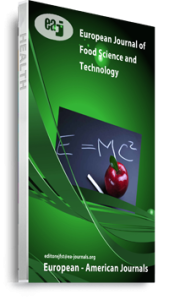Free radical scavenging and antibacterial activities of the extracts from the radix of Scutellaria baicalensis Georgi were examined in this paper. The extracts exhibited the better scavenging activities against 2,2-Diphenyl-1-picrylhydrazyl (DPPH) and 2,2’-azino-bis (3-ethylbenothiazoline-6-sulfonic acid) diammonium salts (ABTS). The results of antibacterial tests showed that the sensitivities to the extracts of different foodborne pathogens tested were different based on Oxford cup method, minimum inhibitory concentration (MIC), and minimum bactericidal concentration (MBC) assays, and the extracts exhibited better antibacterial activity against tested Gram-positive and Gram-negative bacterial. These results suggest that Scutellaria baicalensis Georgi may be a new potential source as a natural antioxidant and bacterial inhibitor.
Keywords: Antibacterial activity, Free radical, Scutellaria baicalensis Georgi

